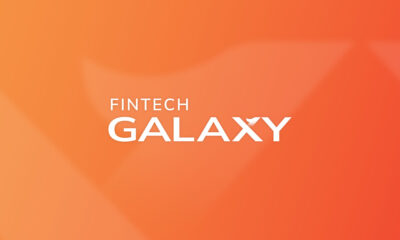News
Jordan’s $45M Push To Boost E-Government & Digital Economy
Authorities hope to digitize public sector services and improve infrastructure by 2025, but societal and technical challenges remain.

Jordan is stepping up its digital transformation efforts with a $45 million investment aimed at modernizing public services and driving forward its digital economy. The Ministry of Digital Economy and Entrepreneurship recently shared plans for how funding will be allocated, with a strong emphasis on using technology to enhance the public sector. The eventual ambitious goal is the digitization of all government services by the end of 2025.
A significant chunk — 43% of the budget — will be directed toward building digital infrastructure under the E-Government Program. According to the ministry, “to date, some 60% of the estimated 2,400 government services have been digitized,” and this number is expected to grow sharply by 2025 as the government ramps up its efforts.
Despite the promising plans, Jordan faces some tough challenges: Budget constraints have previously slowed progress, and the country continues to grapple with a shortage of skilled professionals in key emerging technologies. On top of that, many citizens have been slow to adopt e-services and digital payment systems, which has further hindered the push for a modern, tech-enabled public sector.
Also Read: The Most AI-Proof Career Opportunities In The Middle East
To overcome these hurdles, the ministry emphasized the need for a comprehensive strategy that goes beyond just implementing new technologies. Social and cultural factors also play a significant role in determining how well people embrace digital tools. Bridging these divides will be essential to ensure that digital government systems are not only implemented but widely used.
For Jordan to achieve its lofty goals, collaboration across government departments will be required, along with a strong focus on addressing societal barriers. However, with the right strategy in place, the massive investment could pave the way for a more efficient and inclusive digital future.
News
Google Releases Veo 2 AI Video Tool To MENA Users
The state-of-the-art video generation model is now available in Gemini, offering realistic AI-generated videos with better physics, motion, and detail.

Starting today, users of Gemini Advanced in the MENA region — and globally — can tap into Veo 2, Google’s next-generation video model.
Originally unveiled in 2024, Veo 2 has now been fully integrated into Gemini, supporting multiple languages including Arabic and English. The rollout now brings Google’s most advanced video AI directly into the hands of everyday users.
Veo 2 builds on the foundations of its predecessor with a more sophisticated understanding of the physical world. It’s designed to produce high-fidelity video content with cinematic detail, realistic motion, and greater visual consistency across a wide range of subjects and styles. Whether recreating natural landscapes, human interactions, or stylized environments, the model is capable of interpreting and translating written prompts into eight-second 720p videos that feel almost handcrafted.
Users can generate content directly through the Gemini platform — either via the web or mobile apps. The experience is pretty straightforward: users enter a text-based prompt, and Veo 2 returns a video in 16:9 landscape format, delivered as an MP4 file. These aren’t just generic clips — they can reflect creative, abstract, or highly specific scenarios, making the tool especially useful for content creators, marketers, or anyone experimenting with visual storytelling.
Also Read: Getting Started With Google Gemini: A Beginner’s Guide
To ensure transparency, each video is embedded with SynthID — a digital watermark developed by Google’s DeepMind. The watermark is invisible to the human eye but persists across editing, compression, and sharing. It identifies the video as AI-generated, addressing concerns around misinformation and media authenticity.
While Veo 2 is still in its early phases of public rollout, the technology is part of a broader push by Google to democratize advanced AI tools. With text-to-image, code generation, and now video creation integrated into Gemini, Google is positioning the platform as a full-spectrum creative assistant.
Access to Veo 2 starts today and will continue expanding in the coming weeks. Interested users can try it out at gemini.google.com or through the Gemini app on Android and iOS.























